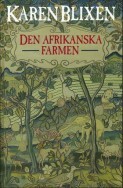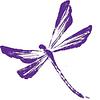Take a photo of a barcode or cover
This was the second time that I read this book. The first time I read it was just after the movie came out in 1986, and upon this second pass I have a greater appreciation for how the screenwriters merged Karen Blixen's writing with her biography to come up with a more traditional (chronological) story.
Blixen's writing is nostalgic and poetic as she paints a picture of colonial Africa from the perspective of a colonizer. I loved her descriptions (beautifully written), but the stories in the book are more or less vignettes, so don't expect a typical novel if you pick up this book: it's not written chronologically. The fragments of her memories she shares are selective but give insight to a different time and place. Karen Blixen loved Africa and the people she met there. This book is a testament to that love.
Blixen's writing is nostalgic and poetic as she paints a picture of colonial Africa from the perspective of a colonizer. I loved her descriptions (beautifully written), but the stories in the book are more or less vignettes, so don't expect a typical novel if you pick up this book: it's not written chronologically. The fragments of her memories she shares are selective but give insight to a different time and place. Karen Blixen loved Africa and the people she met there. This book is a testament to that love.
This was much more reflective and episodic than I remembered it, to the extent that I wondered at the idea of filming it. While respectful of the people amongst whom she lives, Blixen's attitude is still of its time and that sometimes jars on someone who reads New Internationalist. It therefore reads even more than it was written as an elegy for a lost lifestyle. Wonderful descriptions, interesting stories, powerful book. My favourite paragraph is still the one on waiting for the rain, but I didn't mark it this time, so I leave you to find and enjoy it for yourself.
There's a lot in this book that makes a modern reader blanch. Dinesen's description of the "natives" sounds patronizing at best, racist at worst. It's conflicting because even when her descriptions are cringe worthy, her love of the land and the people are obvious. I would say she also makes sweeping generalizations about many national characteristics including her own Danish roots but still... The cruelty to animals was hard to read about. Dinesen seems to feel it too, although she accepts it with resignation. Of course, she also participates in safaris and shoots lions who are taking out livestock. It seems unfair to judge the book by today's morality
I did like reading about a strong willed independent woman from this time period (the 20s) Much of her book are memories gathered into chapters. Toward the end, though , some of her reflections are unrelated and many are just a few pages long. I didn't mind, but it made the book easy to put down. Her last chapter of leaving her beloved farm and Africa are deeply affecting though restrained. Actually, I think that's a good description of the whole book. I was expecting to read about a torrid love affair based on what I've heard about the movie, but that part is oblique. Not a word about hair washing. Again, maybe a reflection of the age. Overall, I'm glad I read this modern classic. It took me to a new place and a different time.
I did like reading about a strong willed independent woman from this time period (the 20s) Much of her book are memories gathered into chapters. Toward the end, though , some of her reflections are unrelated and many are just a few pages long. I didn't mind, but it made the book easy to put down. Her last chapter of leaving her beloved farm and Africa are deeply affecting though restrained. Actually, I think that's a good description of the whole book. I was expecting to read about a torrid love affair based on what I've heard about the movie, but that part is oblique. Not a word about hair washing. Again, maybe a reflection of the age. Overall, I'm glad I read this modern classic. It took me to a new place and a different time.
Not entirely sure why I picked Out of Africa up, I knew Karen Blixen wrote of her own experiences in Africa but for some bizarre reason I was expecting the book to be fiction? Or rather a story and not so much vignettes. As it is, I've no interest in reading it, perhaps if I was studying empires/ colonialism but otherwise no. I know Blixen was in many ways ahead of her time but this is just not for me.
Makes my blood run hot, how much I want a life in the wilderness.
Episode 1 : The Cuckoo
Soon after Karen Blixen relocates to East Africa, she finds herself alone in a foreign land with the enormous responsibility of trying to operate a successful coffee plantation. In order to accomplish this, she must get to know the land and the East Africans who work for and with her. In the process, she learns more about herself.
In 1913, Karen travels to Kenya to marry her second cousin and start a farm in Africa.
Karen Blixen ..... Emma Fielding
Denys Finch-Hatton ..... Tom Goodman-Hill
Kamante .... Beru Tessema
Farah ..... Maynard Eziashi
Wilhelm ..... Sean Baker
Directed by Gaynor Macfarlane.
Soon after Karen Blixen relocates to East Africa, she finds herself alone in a foreign land with the enormous responsibility of trying to operate a successful coffee plantation. In order to accomplish this, she must get to know the land and the East Africans who work for and with her. In the process, she learns more about herself.
In 1913, Karen travels to Kenya to marry her second cousin and start a farm in Africa.
Karen Blixen ..... Emma Fielding
Denys Finch-Hatton ..... Tom Goodman-Hill
Kamante .... Beru Tessema
Farah ..... Maynard Eziashi
Wilhelm ..... Sean Baker
Directed by Gaynor Macfarlane.
Certain stories and sections were beautifully wrought with Blixen bringing the reader right into her world. The first three sections were full of interesting and unique stories. Lulu the gazelle, local customs, tribal justice and tales about many of her servants provided the reader with an insider's view of a world that most of us will never be able to experience. Not only because that time in history has now passed but simply because most of us live out our lives not far from the place or culture of our birth.
The sense of adventure, curiosity and drive that makes someone leave their home, to explore another country completely different to their own and to embrace what they find there is not something that many people do voluntarily. Blixen was obviously an unconventional woman. Her independence and pioneering spirit would have been unusual in her time. She must have faced censure and disapproval at every step.
In Donald Hannah's biography, The Mask and the Reality (1971), she is quoted as saying,
Here at long last one was in a position not to give a damn for all conventions, here was a new kind of freedom which until then one had only found in dreams!
Yet none of this is evident in her book.
All the emotion is sucked right out of it.
Full review here - http://bronasbooks.blogspot.com.au/2017/04/out-of-africa-by-karen-blixen.html
The sense of adventure, curiosity and drive that makes someone leave their home, to explore another country completely different to their own and to embrace what they find there is not something that many people do voluntarily. Blixen was obviously an unconventional woman. Her independence and pioneering spirit would have been unusual in her time. She must have faced censure and disapproval at every step.
In Donald Hannah's biography, The Mask and the Reality (1971), she is quoted as saying,
Here at long last one was in a position not to give a damn for all conventions, here was a new kind of freedom which until then one had only found in dreams!
Yet none of this is evident in her book.
All the emotion is sucked right out of it.
Full review here - http://bronasbooks.blogspot.com.au/2017/04/out-of-africa-by-karen-blixen.html
I really, really wanted to like this book. But, I just didn't. I enjoyed Dinesen's writing style somewhat because it was very conversational. But, the book is very disjointed. There's no sense of chronology. It's more of a collection of short stories or really just vignettes about Dinesen's life in Africa. There's no background about her life and or how she came to live in Africa.
I might have liked it if I had just picked it up every now and then to read just a few sections here & there instead of trying to read it all at once.
I might have liked it if I had just picked it up every now and then to read just a few sections here & there instead of trying to read it all at once.
This is such a beautiful book.
I'm going to be completely honest and say that even though I've heard this title batted around hundreds of times before - in and out of classrooms, with other book enthusiasts, on Gilmore Girls - I never really knew what, exactly, it was about. I'm also going to be honest when I say that I'm glad I went in a little ignorant to the content. It made opening up the pages and exploring Blixen's world like an expedition to a new land.
Out of Africa shows the continent, its people, and its daily life in such a warm light. You can feel the love that Karen Blixen has for her farm and for the people she knew because of it. She formed such honest relationships with people whose customs were foreign but whose hearts were big and open. This is like a cross-cultural exploration of a place that truly deserves a bigger spotlight. It's also so historically rich, offering a unique perspective on European colonialism and its direct affects on both native African peoples and the colonists themselves, through Blixen's eyes.
I expected this to be a quick, easy read - and it was, but it was also so much more. It was a living snapshot of Blixen's life, and the life of those on her farm, bursting with color and with pride, with respect and with love.
I'm going to be completely honest and say that even though I've heard this title batted around hundreds of times before - in and out of classrooms, with other book enthusiasts, on Gilmore Girls - I never really knew what, exactly, it was about. I'm also going to be honest when I say that I'm glad I went in a little ignorant to the content. It made opening up the pages and exploring Blixen's world like an expedition to a new land.
Out of Africa shows the continent, its people, and its daily life in such a warm light. You can feel the love that Karen Blixen has for her farm and for the people she knew because of it. She formed such honest relationships with people whose customs were foreign but whose hearts were big and open. This is like a cross-cultural exploration of a place that truly deserves a bigger spotlight. It's also so historically rich, offering a unique perspective on European colonialism and its direct affects on both native African peoples and the colonists themselves, through Blixen's eyes.
I expected this to be a quick, easy read - and it was, but it was also so much more. It was a living snapshot of Blixen's life, and the life of those on her farm, bursting with color and with pride, with respect and with love.
Just beautiful. Written with so much love it radiates off every page.






